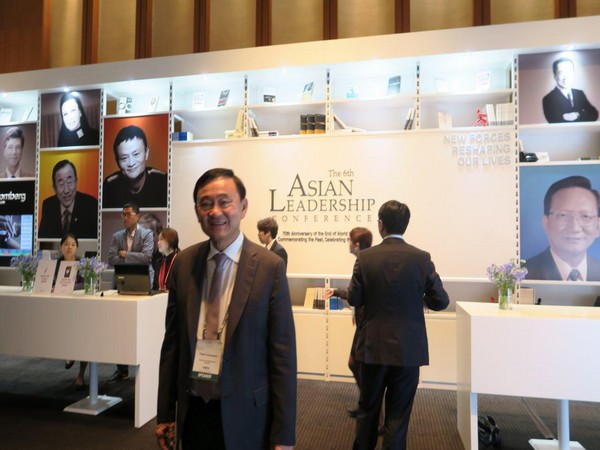Thaksin Shinawatra's Legal Woes: A Reflection on Thai Political Tensions
Former Thai PM Thaksin Shinawatra was granted bail after being indicted for defaming the monarchy. His enduring political influence and prosecution on lese majeste charges highlight ongoing political tensions in Thailand, as his Pheu Thai party grapples with allies and foes in a polarized landscape.

- Country:
- Thailand
Former Thai Prime Minister Thaksin Shinawatra was granted release on bail hours after his formal indictment on charges of defaming the monarchy on Tuesday. This development is one of several legal proceedings that have shaken Thai politics in recent years.
Thaksin, a significant political figure despite being ousted 18 years ago, presented himself to prosecutors and was indicted, according to Prayuth Bejraguna, spokesperson for the Office of the Attorney General. Although a car thought to be transporting him appeared at the Criminal Court in Bangkok, Thaksin did not address reporters. His lawyer, Winyat Chatmontree, assured the media that Thaksin was prepared to engage with the judicial process.
Shortly thereafter, the Criminal Court approved Thaksin's bail with a bond set at 500,000 baht (USD 13,000), stipulating that he cannot leave Thailand without judicial consent. The car left the court without any visual confirmation of Thaksin's presence.
The lese majeste law, penalizing defamation of the monarchy, is notoriously severe, with potential imprisonment of three to 15 years. It has been increasingly employed against government critics. Thaksin, now 74, was removed from office by a 2006 army coup, accused of corruption, power abuse, and disrespecting the late King Bhumibol Adulyadej.
In 2016, Thaksin faced lese majeste charges over comments made in 2015 in South Korea, but the case was delayed due to his exile in 2008. Upon his return to Thailand last year, he served time for corruption and power abuse convictions, mostly in hospital based on medical claims, and was paroled in February.
Thaksin's return occurred as the Pheu Thai party, which he is associated with, collaborated with long-standing conservative rivals to form a government. Analysts suggest his lenient punishment was part of a political compromise to keep the progressive Move Forward party from power.
Maintaining a high profile, Thaksin's public engagements and political remarks have stirred tension among establishment figures, prompting analysts to view his lese majeste prosecution as a strategic message to temper his actions.
This case underscores Thailand's complex political landscape, as Pheu Thai navigates alliances amid ongoing legal battles, including Move Forward's potential dissolution and investigations into Prime Minister Srettha Thavisin's actions. Thailand's judiciary, particularly the Constitutional Court, remains a pivotal entity in these political dynamics.
(This story has not been edited by Devdiscourse staff and is auto-generated from a syndicated feed.)










